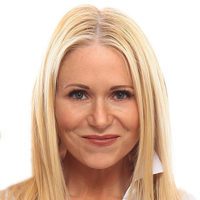Berkeley Haas is rolling out core curriculum changes designed to prepare MBA students for a fast-changing workplace by equipping them with enhanced communication skills and deeper data knowledge.
The refreshed curriculum includes additional training in business communications and persuasion skills, doubles the coursework in statistics and data analytics, and adds a brand new course—perhaps the first required core business class in the U.S., on leading diverse teams. The new courses will be rolled out in the full-time MBA program during the 2021-22 academic year.
An eight-member faculty task force worked throughout the pandemic to rethink the MBA core experience. The faculty in April unanimously approved the task force’s recommendations.

“I am so proud of the hard work that our faculty-led team put into these transformative core curriculum changes,” said Dean Ann Harrison, who created the core committee, which was led by co-chairs Prof. Ross Levine and Assoc. Prof. Dana R. Carney. “We are rolling out innovative courses that will help prepare our students for what’s next, addressing a wide range of workplace challenges—from questioning the ethics of artificial intelligence to recognizing how unconscious bias impacts management decisions.”
Three new courses
The MBA core consists of 14 required courses that form the fundamental building blocks of a general management education. The classes are designed to build on each other, providing students with the analytical tools and knowledge required to manage complex managerial problems–skills every employer expects from an MBA.
The MBA core consists of 14 required courses that form the fundamental building blocks of a general management education.
The three courses added to the core include:
- Data Analytics will provide more extensive training in data analytics, artificial intelligence, and related approaches to using big data for decision making. The course is a companion to the existing Data and Decisions statistical analysis course.
- Data-Driven Presentations: Making the Business Case will better prepare students to make persuasive arguments using data and narrative. It builds on the knowledge and experience developed in the courses Data and Decisions and Leadership Communication.
- Business Communication in Diverse Work Environments will help students navigate diverse settings more effectively to improve their ability to create, work within, and lead diverse teams and global organizations. It also develops critical thinking on topics such as identity, relationships across differences, bias, and equality of opportunity in organizations.
Levine said he was proud of the group’s camaraderie and collaboration and the transparency of the process.

“It’s very important for any type of program to re-evaluate, reassess, renew, modernize, and make things as relevant and useful for students as possible,” said Levine, the Willis H. Booth Chair in Banking and Finance. “We worked very hard to make some changes that would help our students achieve their professional ambitions.”
Jay Stowsky, who served as Senior Assistant Dean of Instruction for the past 13 years, added that the curriculum changes will make it easier for faculty “to address, with relevance to each of their courses and academic disciplines, the broader social impacts of business.”
Evidence-based changes

Copious research enabled the task force to have full confidence in the proposed core changes, said Carney, a psychologist who studies racial bias and is the director of the Institute of Personality and Social Research at UC Berkeley. “We knew that we had to have a lot of data to guide and substantiate the changes the data suggested we make; we made sure the data we collected were unimpeachable,” she said.
As part of this research, the task force members sought extensive feedback from different groups before making its recommendations. They met with tenure-track and teaching faculty and current students and separately with MBA students active in the Race Inclusion Initiative (RII) and the Gender Equity Initiative (GEI) at Haas.
“We knew that we had to have a lot of data to guide and substantiate the changes the data suggested we make.” – Assoc. Prof. Dana Carney.
The task force also worked closely with the Haas Board and the Career Management Group (CMG), which developed a survey of recent alumni and collected data from corporate recruiters on the skills they seek when hiring. Early in the process, two clear areas in the existing curriculum emerged that would need a fresh and upgraded experience—interacting with people and interacting with data, Carney said.
Jenn Bridge, senior director of employer engagement & industry readiness at Haas, said her team’s interviews with recruiters and alumni surveys aligned with findings in the World Economic Forum’s Future of Jobs report, confirming the demand for strong data and people-centered skills.
“Being nimble as a leader and managing people through change are skills that are highly desired,” she said. “The pandemic has accelerated all of this.”
Learn by doing
One of the ways the task force made room in students’ schedules for the new core courses was to to shift the decade-old Fundamentals of Design Thinking course from the core to an elective.
Haas pioneered teaching design thinking as part of an MBA core refresh in 2010. Since then, design thinking has become a standard approach to problem solving, woven throughout the curriculum, especially in the required project-based Applied Innovation electives. MBA students will continue to “learn by doing” through design thinking and other decision-making approaches, Stowsky said.
The part-time MBA programs are considering the core refresh in light of the needs of their students. In the Evening & Weekend MBA program, the Business Communications in Diverse Environments core course will be added to the core and become the capstone course, while the two new data-focused courses will offered as electives. Implementation in the MBA for Executives program is under discussion with the EMBA Academic Program Committee.